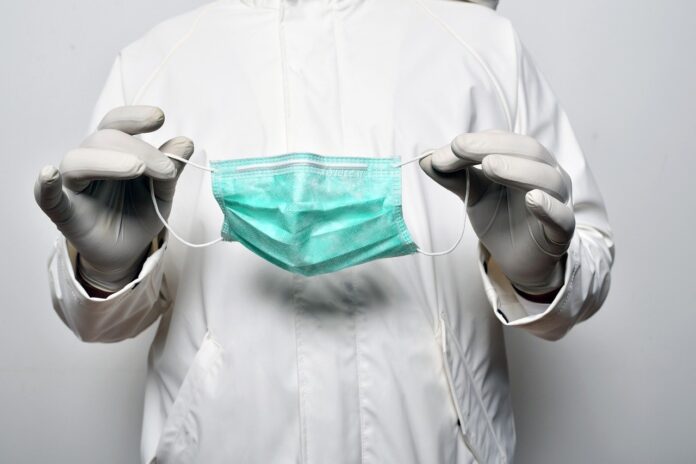In the past seven months, different studies have confirmed that the use of a face covering for coronavirus effectively reduces the risk of transmission significantly. At first, the vast majority assumed that only medical-grade N95 masks can provide protection but researchers later confirmed that any mask can be helpful.
According to the current guidelines from the U.S. Centre for Disease Control and Prevention, fabric masks with two or three layers can give sufficient protection to the general public and cuts down the risk of both contracting and spreading the virus.
On the other hand, people working in health care, especially those in the front lines, require PPEs or personal protection equipment. Therefore, they are advised to only use N95 masks, particularly while managing coronavirus patients in order to avoid exposure.
In addition, people in certain professions may also need a higher level of protection such as those with jobs that require a lot of public interactions.
RELATED: Can Mouthwash Help Lower Risk of Coronavirus?
For instance, a salesperson in a grocery store or shop deals and interacts with a big number of customers face to face every day and may have more chances of coming into contact with an infected person.
In such a case, taking extra precautions is recommended by health experts especially now when the second and third wave of coronavirus has started in nearly all countries around the world.
Although wearing any type of mask is better than not wearing anything at all, there may be a new mask soon that can be the most effective out of all other options available.
The new type of mask, which has been designed by scientists from the Northwestern University in Illinois, can not only help in preventing the virus by blocking them but even clean the droplets that may have the coronavirus in them.
How does the mask work? According to scientists, the mask has been developed using special fabric that has been chemically treated.
More specifically, the mask contains chemicals that can disinfect and get rid of viruses effectively such as chemical salt and phosphoric acid.
The mask has also been tested in a simulation, which showed that it can reduce the risk of coronavirus infection in nearly eighty-two percent of the cases.
The use of the chemically treated mask in place of regular fabric masks can control spread specifically in people who are pre-symptomatic or in asymptomatic cases as they contribute to transmission levels unknowingly.
At the moment, the team of scientists from Northwestern states that the mask is in its early stages and further investigation is required to know more about its effectiveness and other potential effects.
Until there is sufficient evidence to show chemically-treated masks can provide better protection as well as are non-toxic, it is recommended that people continue to follow current instructions for prevention and wear a regular mask strictly.
Not wearing a mask can not only put a person at a higher risk of catching the coronavirus infection but also other people around him and the overall community.




